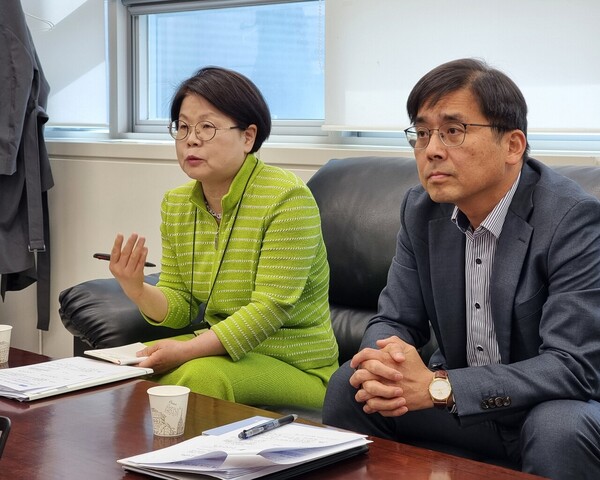The Ministry of Food and Drug Safety has worked out a temporary permissible standard (daily dose) for atenolol-based hypertension drugs that caused controversy due to the detection of nitrosamine impurities.
It decided not to withdraw them from the market.

Oh Jeong-won, director of the Pharmaceutical Management Division at the Ministry of Food and Drug Safety, and Kim Mi-jeong, director of the Pharmaceutical Standards Division at the National Institute of Food and Drug Safety Evaluation, said so while explaining the background for introducing “a temporary permissible standard for unintentional impurities” Tuesday.
More specifically, the ministry will distribute and apply the standard from Wednesday. In the case of impurities without enough toxicity data to decide acceptable standards, it will apply the criteria of 178 nanograms per day for 12 months.
The ministry considered the 26.5ng/day set by the European Medicine Agency as common criteria for nitrosamine impurities in determining its standard. However, in the case of impurities with previous permissible standards, the ministry will set different criteria and request correction and prevention actions (CAPA), including reducing them within three years.
The criteria for applying this temporary acceptable standard include whether they can set an acceptable standard (allowable daily dose), the level of detected impurities, concerns about medical needs and supply shortage, and examining trends among foreign regulatory agencies. The ministry will decide whether to apply these standards case by case.
The ministry explained unintentional new impurities, such as nitrosamine drug substance-related impurities (NDSRIs), continue to be detected at home and abroad, and atenolol drug impurities are one of them.
“The non-withdrawal decision is to prevent the possible supply shortage of drugs with unintentional impurities,” Director Oh said. “The risk of impurity detected from atenolol drugs has yet to be clarified scientifically. Experts also said it is excessive to withdraw these drugs.”
Director Kim also said, “Regulatory agencies worldwide are also concerned about the detection of impurities from atenolol drugs, trying to grasp their harmfulness. We are also positively communicating with our foreign counterparts. It may cause only confusion if we withdraw them hastily without scientific grounds.”
Thirty-two Korean drugmakers sell atenolol-based hypertension drugs except those used for foreign shipments.

